5 Reasons Superhero Movies Are a Bubble That Will Soon Burst

If you're a lover of comic books, fantasy novels, or sci-fi, you should be in heaven right now. All of Hollywood caters to your tastes. Hell, if you're under 20 years old, you don't even remember what it's like not to have Hollywood throw $2 billion worth of blockbuster movies at you every summer (while the rest of us remember that as recently as 1994 they made a Fantastic Four movie so bad, it couldn't even be released).
That brings us to the bad news: The explosion of big-budget superhero movies is a bubble that seems poised to burst. How do we know? Because it's happened before.
It all starts when ...
(Star Wars isn't a bubble, it's eternal. Hence our new Adventures in Jedi School mini-series.)
A Surprise Box Office Success Makes Everyone Jump on the Bandwagon

First of all, we're not necessarily saying that there are too many superhero movies out there -- lots of us are excited about Iron Man 3 and Man of Steel and the seven or eight others that are coming out this summer.
But right now, Marvel alone has in production (deep breath) Iron Man 3, Wolverine 2, Thor: The Dark World, Captain America: The Winter Soldier, The Amazing Spider-Man 2, X-Men: Days of Future Past, The Fantastic Four (reboot), The Avengers 2, and Ant-Man. In the course of these films, Thor is going to fight elves, Captain America is going to fight a cyborg, and there's going to be a whole movie about the "Guardians of the Galaxy," which, you may not know, look like this:
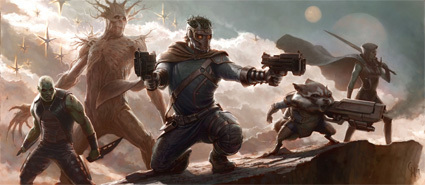
"Are you two sure you don't want guns? 'Cause I have like 30 in the ship."
Are you seeing the raccoon?
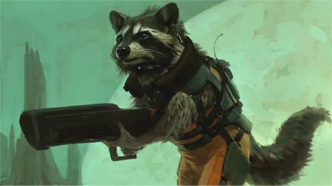
We'll forgive everything if there's a scene where he uses garbage like Popeye uses spinach.
Oh, and by the way, the new X-Men movie -- called Days of Future Past -- revolves around Kitty Pryde sending her brain back in time. So we're saying that we might just possibly be reaching a tipping point here.
Let's back up a bit:
While no one bats an eye today when The Dark Knight Rises pulls in a bajillion dollars at the box office, that would've been unthinkable just 15 years ago. In the '90s, all of the major money-maker movies were Die Hard knockoffs (Con Air, Broken Arrow, Face/Off), sober explorations of tragedies (Dances With Wolves, Schindler's List, Titanic), Adam Sandler being a dumbass, and Tom Hanks doing things that usually didn't involve having superpowers.
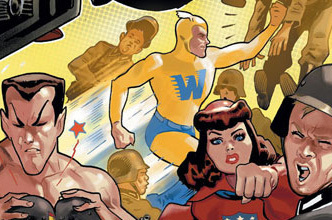
Which is incredible considering that the Whizzer was there for the taking.
This changed in 2000 and 2001 when X-Men, Spider-Man, and the first The Lord of the Rings came out. Remember that back then those geek-centric movies were all pretty risky investments for the studios. Not only was this the first time that either of those Marvel superheroes would be seen on screen, but the last superhero movie to come out at that time had been Batman & Robin, which, you know, we'd rather not talk about. As for The Lord of the Rings, the last attempt at an adaptation was a godawful cartoon that was made in the 1980s.
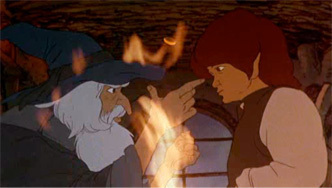
How long did it take you to realize that Gandalf isn't jacking off a fire-dick?
All of those movies opened at No. 1 at the box office -- Spider-Man actually set the box office record at the time, and The Lord of the Rings is still going on with its Hobbit prequels. Naturally, all the Hollywood money men had their goddamn minds blown, and today they'll throw a quarter billion dollars at any project that involves a hero in a mask. That's what we're referring to as a bubble.
And It Has Happened Before ...
A similar bubble happened more than 40 years ago. They called it the "New Hollywood" era, and it gave us Star Wars.
It started in 1967, with Bonnie and Clyde. It's considered a classic now, but at the time everyone thought it would bomb because it was heavily influenced by star/director Warren Beatty's interest in weird French movies, it confusingly mixed sex, violence, and comedy, and it ended with all the main characters dying. But like the movies above, it rocked everyone's fucking faces off.
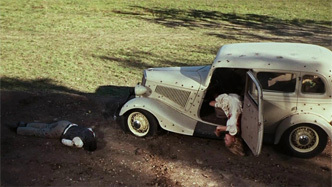
"Sex + Violence = Money. Got it." -Hollywood, 1967
In both 1967 and 2000, a risky movie based on nerdy, obscure sensibilities was given a big release and paid off enormously. Next ...
The Geeks Take Over, and Everything Goes Great for a While

So next comes the heyday: Geek directors who truly love the source material are suddenly getting the green light to make these movies the right way.
We've documented Peter Jackson's obsessive attention to detail while making The Lord of the Rings, but it's also worth noting that Sam Raimi's Spider-Man contains tons of nods to the actual comics, like the fact that the climax is almost identical to "The Night Gwen Stacy Died," if you change Gwen Stacy to Mary Jane and, you know, don't kill her.
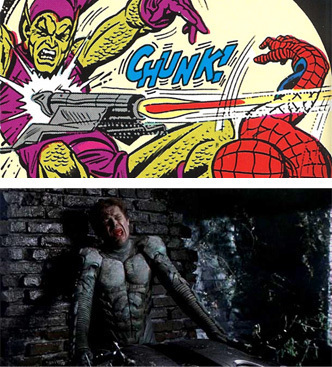
And change chest impaling to dick kebabing.
Likewise, X-Men was pretty faithful when it came to characters, pretty much only changing the costumes -- and even that gets a nod when Cyclops suggests that Wolverine wear "yellow spandex." The people who made these movies made it a priority to keep the geeks happy (probably not realizing what a dong-punchingly difficult task that is).
Compare that to 1989's Batman, directed by a guy who said he didn't like comics and written by a guy who thought Batman's origin story was too dumb to work in a movie. It was a new era. The geeks had ascended to the throne!

"Come to me, brothers of Warner! Kneel before Rod!"
And It Has Happened Before ...
The New Hollywood era was all about film geeks taking over -- a bunch of weird, experimental directors known as the "movie brats," with names like George Lucas, Francis Ford Coppola, Steven Spielberg, and Stanley Kubrick.
They stood out because they were the first generation of filmmakers to grow up watching and loving movies, which is why their films are full of little references to the past. If you know your shit, you can recognize these homages -- in Taxi Driver, when Martin Scorsese has a super-stressed-out Travis Bickle (Robert DeNiro) stare into the bubbles of his drink in search of meaning ...

... he's referencing another scene (as pointed out in the documentary The Story of Film) in Jean-Luc Godard's Two or Three Things I Know About Her, where a man stares at the bubbles in his drink for the same reason.

Yup, those are bubbles alright.
Which, in turn, is referencing Carol Reed's Odd Man Out:
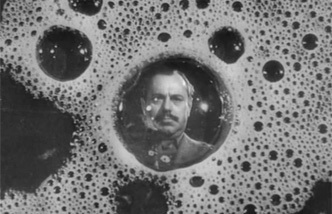
"Waiter? There's a mustachioed personification of anxiety in my drink."
These were the defining qualities of the New Hollywood era, and they're all present in the contemporary era as well -- which we're gonna call the Nerdywood era (so go mingle and use that term among yourselves until it catches on). This passion and excitement about already-existing art that defined the movie brats is also what makes post-X-Men sci-fi, fantasy, and superhero movies stand out: They're excited about their source material.
Nerdywood was the first time that nerds were being openly appealed to, and our response was to lose our collective shit and started dumping our wallets out on the movie studios' front lawns. So, of course ...
The Studios Start Throwing ALL of the Money at Them

Remember when Christopher Nolan was announced as the director of a Batman reboot? Of course you don't, because back in 2003 no one knew what a reboot was or what a Christopher Nolan was or why we should care about a new Batman movie because the last one had sucked.
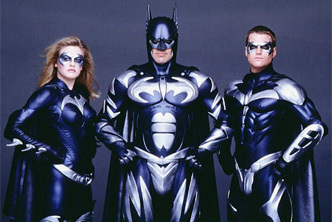
Think about how many people had to sign off on those costumes before this picture was taken.
But, oddly enough, that's probably why he was chosen: In that story we linked up there, Nolan talks about being passionate about the character (one of the hallmarks of Nerdywood, as explained above), and he had a weird, borderline crazy idea for the new series: Batman would be gritty and realistic. That had never been done on film before, but Nolan was young, nerdy, and excited, so the studios gave him an insane-o-copter ride to the money castle, and holy shit did it ever pay off.
Fast forward 10 years, and you can see that The Avengers is pretty much the same thing, except even more so. No, it's not gritty or realistic, but it sure is weird and risky: It expects audiences to follow one story across two sci-fi action movies, a fantasy movie, a fugitive movie, and a World War II era adventure film. Most movies treat you like you can't even tie your own goddamn shoes, but The Avengers took that risk and ended up going home with 1.5 billion nerd-dollars lining its pockets.

What The Avengers did to the box office.
Now the entire fortunes of studios hang on how these gambles pay off.
And It Has Happened Before ...
Coppola's Apocalypse Now was a weird, morally complicated exploration of war based on a nigh-impenetrable 19th century novel, but it dominated the box office. Jaws was the first ever summer blockbuster, and Star Wars only turned out the way it did because Lucas refused to compromise and made the movie himself.
All these risks paid off hugely, and to the studios things looked pretty simple: big risks, big beards, and big egos mean big profits.
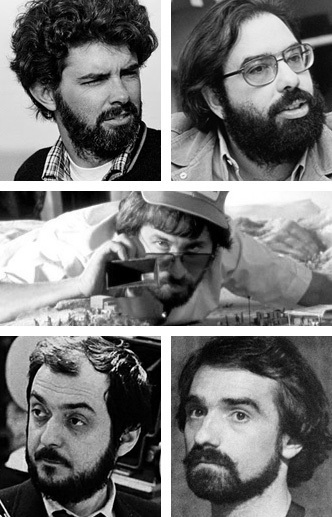
Beards are to directing what steroids are to athletics.
Well, shit, what's the problem? So what if Hollywood created a kind of "bubble" around a few creators and franchises and continued to pour more and more money into them? That's the thing about bubbles! They never, ever burst!
Well, there's just one problem ...
The Studios That Spend the Money Start Demanding More Control

So what started as a risky attempt to appeal to a nerdy demographic that was never seen as profitable before was now the studios' lifeblood. And next comes the meddling.
You could start to see the signs years ago. After the success of Raimi's first two Spider-Man movies, the studio pressured him into including Venom because he was a popular comic book character -- except Raimi had been concentrating on the Silver Age of comics, and the dark, gritty, '90s era Venom didn't fit into the world he'd created. When they greenlit a movie version of The League of Extraordinary Gentlemen, they had such a limited idea of what a comic book movie could be that they turned Alan Moore's love letter to 19th century prose into a movie with vampires where things explode and Sean Connery does hero things. When they made The Losers, they cut out all the political commentary and replaced it with light-hearted action bullshit. When they made Watchmen, they cut out the self-loathing, rape, and moral complexity and replaced them with slow-motion action scenes. As other people have pointed out, this totally missed the point that Watchmen is about failure.
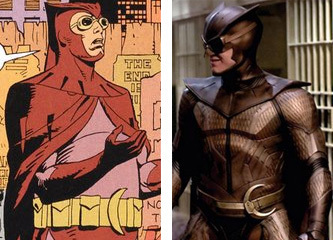
"Totally nailed the 'fat guy' look!" -costume designer
Of course Watchmen made money, but that's beside the point, because it made money in the same way all previous superhero movies had made money (by being an action movie) when the whole point of the comic book is that it's totally different from other superhero stories. They were scared to take a risk and actually try something new, even though exploring this stuff in a new way is exactly what brought about success in the first place.
There's just too much money at stake. Hey, wasn't it cool how Nolan was able to tell a complete story arc with Batman that actually ended, with Bruce Wayne flying off into the sunset? That sure as hell won't stop the studio from rebooting him back into existence in a couple of years, inexplicably in the same movie as Superman.
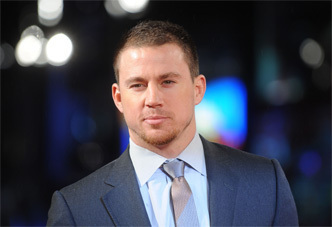
Before you say how awesome that'll be, think about the possibility of this man donning that cowl.
And It Has Happened Before ...
This is where it gets ironic, because even though the brilliance of Apocalypse Now, Star Wars, and Jaws all came directly from fuck-ups, compromises, and crazy artistic vision, their massive success ended up leading to more studio control than ever before.
Once big companies saw how much money those movies made, they started buying up all the studios. And these companies wanted a safe, reliable return on their investment. It was a catch-22: The corporate owners wanted blockbuster cash cows like Jaws and Star Wars instead of risky, experimental money losers ... but they didn't understand that Jaws and Star Wars were risky and experimental and that everyone expected them to lose money at the time.
But with these massive budgets, studios were determined to play it safe. That meant, of course, some of the riskier directors had to go -- like when they were considering giving Straw Dogs director Sam Peckinpah the Superman movie, but fired him when he pulled a gun out during a meeting.
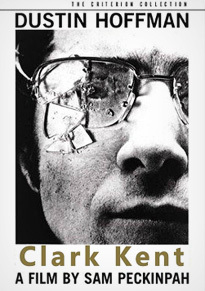
How badly do you wanna be traumatized by this movie?
After The Godfather: Part II made money and became the first sequel to win an Oscar, studios decided that this meant that people will pay money to go see things they've already seen -- this ushered in the age of the big-budget sequel (which, by the way, never ended). After risk, hardship, and innovation brought in the money, risk, hardship, and innovation were the first things the money tried to drive out.
And then ...
The Bets Stop Paying Off

We mentioned that New Line has given Peter Jackson a castle made of money for his Hobbit trilogy, but we didn't mention that they're $5 billion in debt and need him to make all that money back to keep themselves from filing for bankruptcy. Is it any wonder that what was originally supposed to be one movie got stretched into two movies? And then, very late in production, they decided out of the blue to stretch it into three?
They needed three shots to recoup their investment. That's why the first film, An Unexpected Journey, was based less on the children's book it gets its name from and more on The Return of the King's appendices and whatever bullshit Tolkien scrawled on the Oxford staff bathroom's wall while he was fucked up on opium.
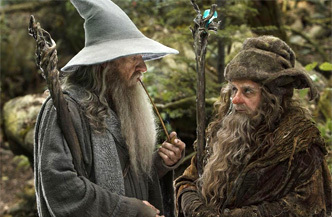
"A spawn of Ungoliant from Dol Goldur, Mithrandir!"
But they're not the only ones putting all of their chips on their geek franchise. In addition to the lineup of 10 massive Marvel sequels we mentioned earlier, you have Christopher Nolan (probably) signing on to "Godfather" a Justice League movie -- if you're not familiar, that means that in addition to the Superman reboot we're seeing this summer, they'd be launching another wave of superhero movies, including a Green Lantern sequel, a reboot of The Flash, a possible Wonder Woman movie, and God knows what else, in order to have them finally all team up in a Justice League tent-pole that would be the DC version of The Avengers.
Meanwhile, J.J. Abrams, who is already in charge of the new Star Trek franchise, has been tapped to direct the first of the new Star Wars sequels, of which there will be at least five -- three sequels, plus multiple stand-alone spinoffs (Disney wants a new Star Wars movie every single year, like clockwork). How much money in production and promotion do you suppose will be tied up in just the projects we mentioned up there? $10 billion? More?
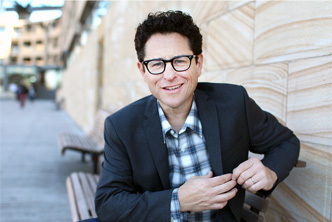
"We're using three of that to create new state-of-the-art lens flare technology."
And It Has Happened Before ...
Star Wars and Jaws are called "the beginning of the end" of New Hollywood (by Wikipedia, anyway) because they created the blockbuster, but the real end didn't come until around 1980, with the release of two legendary flops: Michael Cimino's Heaven's Gate, and Francis Ford Coppola's One from the Heart.
Both cases were highly regarded auteur filmmakers at the peak of their career, fresh off a huge success (One from the Heart was Coppola's first film after Apocalypse Now). In both cases, the studios allowed their crazy, ambitious filmmaker to go way over budget with a deeply personal film. And in both cases, the results were disastrous: One from the Heart bankrupted Coppola, who had tried to start his own studio with George Lucas, and Heaven's Gate drove United Artists straight out of business.
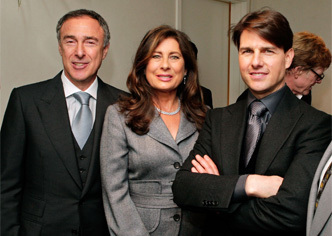
And in keeping with modern Hollywood, they tried to reboot the studio decades later. It failed.
When the New Hollywood era ended, Hollywood changed how it does business. The blockbuster era began, and high-concept, family-friendly franchises dominated. Now look at the timeline: Bonnie and Clyde kicked off the New Hollywood era in 1967, and Heaven's Gate brought it crashing down in 1980 -- 13 years later. X-Men came out in 2000, so ...
Why not wash the taste of Hollywood's failure out of your mouth with the trailer to Cracked's new Star Wars mini-series?
J.F. Sargent thinks you should tell him how wrong he is (with lots of swearing!) on Twitter, Tumblr, and Facebook.
For more on superhero movies, check out 8 (Pointless) Laws All Comic Book Movies Follow and The 7 Least Faithful Comic Book Movies.